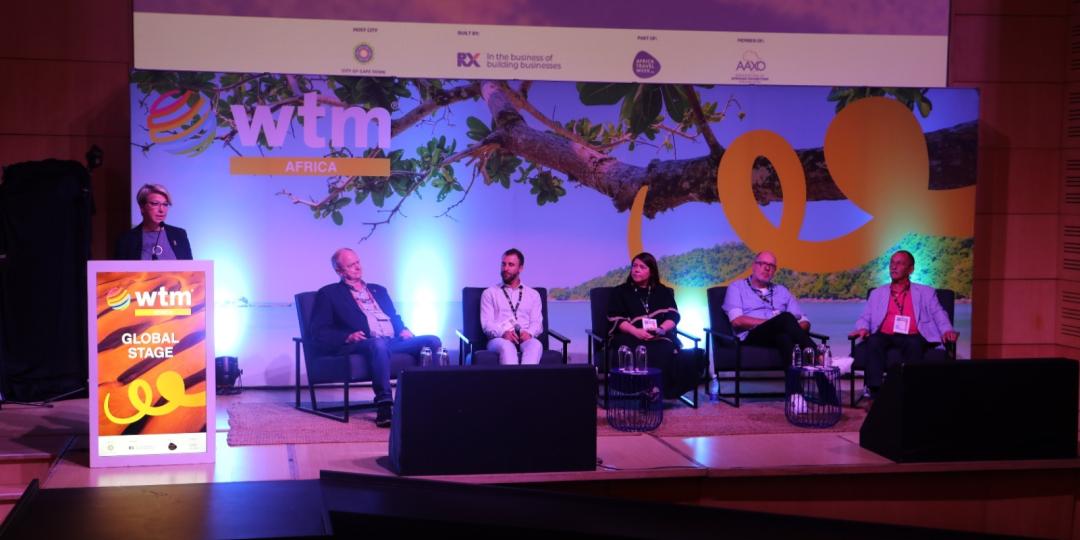Demand for South Africa’s travel offerings from top source markets remains strong, and with prospective visitors not overly concerned by issues such as loadshedding, the country has significant opportunities to compete on a global level.
These were some of the notable insights that emerged from a WTM Africa panel discussion delving into the continent’s key source markets, including the US, Italy, the Benelux region and Scandinavia.
“In January and February, eight of the Western Cape’s top-10 source markets more than fully recovered from pre-COVID levels. The US has performed exceptionally strongly for South Africa, Italy has recovered well, the Benelux region is turning up the heat and Scandinavia is punching way above its weight,” said panel discussion moderator Monika Iuel, Chief Marketing Officer for Wesgro.
SA can compete on global level
The panellists, who comprised experienced tour operators from the specific regions, were of the consensus that South Africa’s tourism potential remained undercapitalised.
“South Africa is a world in one country. Offerings in US dollars in other African countries are expensive, so the destination is very affordable. We have also never had an incident compromising the security of guests. The similar time zone is also a plus. However, there is no marketing of the country in the Nordics,” said Rune Engstrøm, General Manager of Norway-based Destination Africa.
Engstrøm pointed out that there was significant potential to expand the Nordic source market, particularly considering that travellers from the region “spend 90% more than the average European”.
Minna Nilivaara, Founder and MD of Sydafrikaexperten AB in Sweden, said South Africa had far more to offer than other more popular destinations for Swedish travellers, such as Thailand.
“First-time travellers from Sweden are normally very surprised by the stunning scenery and get very immersed in the colourful culture and nature too.”
Luca Zanon, Senior Destination Manager for Italian operator Viaggigiovani, said the price-sensitive Italian market was particularly keen on South Africa’s safari, food and wine offerings.
“They also feel comfortable self-driving, especially in and around Cape Town,” said Zanon.
Focusing on the US market – South Africa’s second-largest after the UK – Neil Stuckenburg, Senior Safari & Tour Specialist at Outbound in Africa, said his business had seen a marked increase in multi-generational family travel.
“Safaris are a fantastic multigenerational experience for US clients, and we’ve seen an increase in bookings for villa-style, exclusive-use accommodation.”
Bart de Swaef, Owner of the Delta 3 MICE Agency in Belgium, said, compared with other destinations such as those in Latin America, South Africa had decent safety and affordable pricing.
“The launch of the direct Air Belgium flight has also been key, not only limiting time spent in the air but also lowering the cost of travel from around €1100 to around €850.”
Loadshedding not a major concern
The panellists agreed that loadshedding hadn’t been a deterrent to tourism.
“However, nobody in the US or the rest of the developed world is very familiar with living in such a scenario, so it’s important to explain the situation to travellers and to identify properties that are equipped with back-up power. Guests also greatly appreciate the presence of accurate mobile apps that can inform them of when power outages are taking place,” Stuckenberg said.
Engstrøm agreed, saying that as long as there was accurate and predictable information, guests were not overly concerned about the issue.
“For many, it’s actually a part of the South African experience! It’s obviously a very serious problem for suppliers, but it isn’t affecting guests badly, from my experience.”
More concerning, however, was the impact of South Africa’s questionable relationships with Russia: both Engstrøm and Stuckenburg said they had had several cancellations from guests unhappy about the situation.























